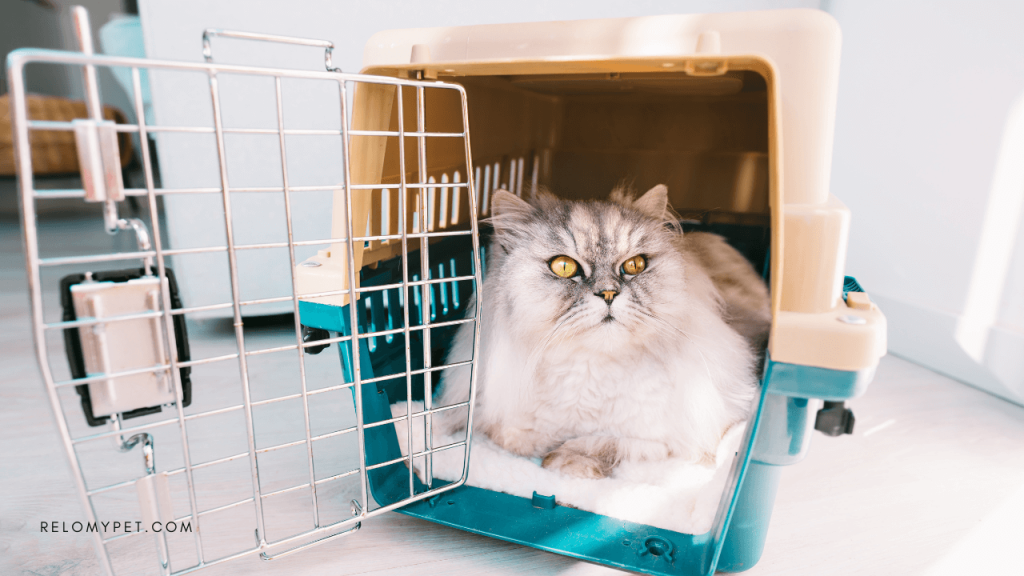Pets Flying in Cargo: Answers to the Most Frequent Questions.
Table of Contents
Transporting Pets As Cargo: What Should You Know?
Precautions to take before transporting your pet as cargo.
Transporting pets as cargo can be safe if proper precautions are taken. Many airlines have specific procedures in place to ensure the safety and well-being of pets during transport. However, it is important to research the airline or pet transport company’s policies and procedures to ensure that they meet your standards and expectations.
Here are some precautions that can help ensure the safe transport of pets as cargo:
Use a reputable airline or pet transport company: Research and choose an airline or pet transport company with a good reputation for pet transportation.
Use an appropriate pet carrier: Use a carrier that is appropriate for your pet’s size, and ensure that it is ventilated and secure.
Provide familiar bedding and toys: Include your pet’s favorite bedding and toys in the carrier to provide comfort and familiarity during transport.
Label the carrier clearly: Label the carrier with your pet’s name, your name and contact information, and any relevant travel information.
Provide adequate food and water: Ensure that your pet has access to food and water before and during transport.
Book direct flights when possible: Book direct flights when possible to minimize the amount of time your pet spends in transit.
Consider using a pet transport service: Consider using a pet transport service that specializes in the safe transport of pets. For instance, at Relopet International, we have experience handling pets during transport and can provide additional peace of mind.
How Relopet International Makes Your Pet’s Flying in Cargo Safe?
As a caring pet parent it’s only natural to wonder if sending your pet as cargo is safe. There’s a lot of information out there, therefore, searching for answers can be challenging. Let us provide you with information that is based on experience and knowledge that was gained through being in the pet transportation industry for several years. The short answer is – yes, it is safe, provided that all safety procedures are followed.

What we do to ensure safe pet transport as cargo.
Here is how Relopet International makes sure that your pet is provided with the safest travel experience possible.
We ensure that all pets travel in a well-ventilated and rigid travel carrier.
Pets are only booked to fly on aircraft that haму a climate-controlled and pressurized cargo area.
Pets are always provided with enough water throughout their journey.
We do not transport pets when outside temperatures are below -7°C or above 27°C. Although the cargo area is climate-controlled, your pet might have to wait on the tarmac before being loaded onto the plane.
All pets are required to go through the preflight health check even if the airline does not require it.
We give our preference to the airlines that have strict safety policies regarding handling and transportation of live animals.
We will not transport puppies or kittens that are ten weeks old or younger.
We will not transport short-nosed pets when the temperature exceeds 24°C.
We will not transport animals that have been sedated or injured.
FAQ: Transporting Pets as Cargo.
You might still have some questions unanswered, so here are the answers to the most often asked questions related to the safety when transporting a pet by air:

Q: What types of pets can be transported as cargo?
A: Most airlines and pet transport companies can transport dogs and cats, as well as other small pets such as birds, rabbits, and hamsters. Some airlines may also transport larger animals such as horses or cattle.
Q: Is it safe to transport pets as cargo?
A: Yes, transporting pets as cargo can be safe if proper precautions are taken. Many airlines and pet transport companies have specific procedures in place to ensure the safety and well-being of pets during transport.
Q: Is it safe to transport elderly pets?
A: It all depends on the overall health of your pet. Most older pets are doing very well during the flight as they end up snoozing for the most part of the journey. However, it’s highly advisable to reach out to your veterinarian and ask them if there are any risks involved with traveling by air.
Q: What are the risks of transporting pets as cargo?
A: The main risks of transporting pets as cargo include stress, injury, and illness. However, these risks can be minimized by using a reputable airline or pet transport company, providing a secure and comfortable carrier, labeling the carrier clearly, providing adequate food and water, booking direct flights when possible, and considering using a pet transport service.
Q: My pet requires medication. How can I make sure that the medication is administered properly and on time?
A: The animal handling staff at the airport can administer most medications. If your pet requires any medicine during transit, your veterinarian needs to issue a letter that provides details about the time the medication needs to be given and the reason why your pet requires medication. We’ll attach the letter along with the medication to your pet’s travel carrier at the time of check-in. The animal handling staff will take care of the rest.
Q: I’m worried that my pet is going to be staying inside the travel crate for several hours.
A: It’s IATA regulation that every pet needs to travel in a travel carrier that is large enough for a pet to stand, sit and turn around. If we really think about it, pets are always flying first class as no human gets so much space when flying.
Q: How much does it cost to transport a pet as cargo?
A: The cost of transporting a pet as cargo can vary depending on several factors, such as the destination, mode of transportation, and airline or pet transport company. Airfare for a pet can range from a few hundred to several thousand dollars, depending on the size of the pet, the airline, and the destination.
Q: What documents are required to transport a pet as cargo?
A: The documents required to transport a pet as cargo can vary depending on the destination country and the airline or pet transport company. Typically, health certificates, vaccination records, and permits are required.
Q: What should I do to prepare my pet for transport as cargo?
A: To prepare your pet for transport as cargo, you should make sure they are up to date on all required vaccinations and have a health certificate from your veterinarian. You should also acclimate your pet to their carrier, provide familiar bedding and toys, and label the carrier clearly with your pet’s name and your contact information.
For Inquiries.
Relopet International aids customers and their treasured pets in planning safe and easy travel from beginning to end. Contact us regarding the transport of your furry family member using our online request form, email [email protected], or phone (604) 774-2707.
